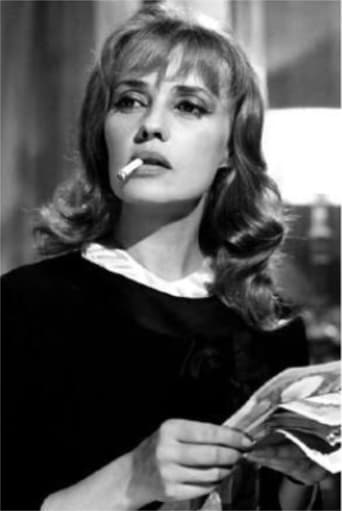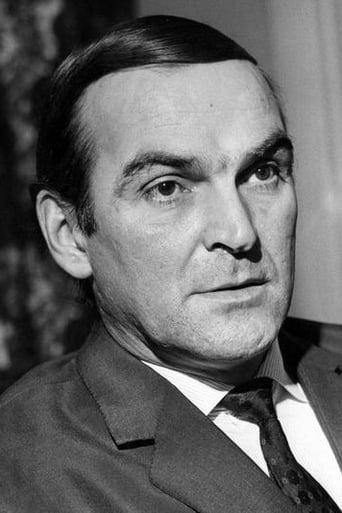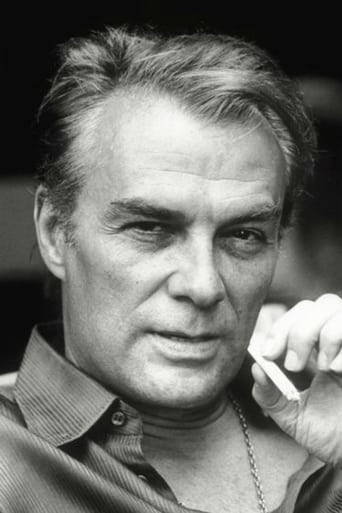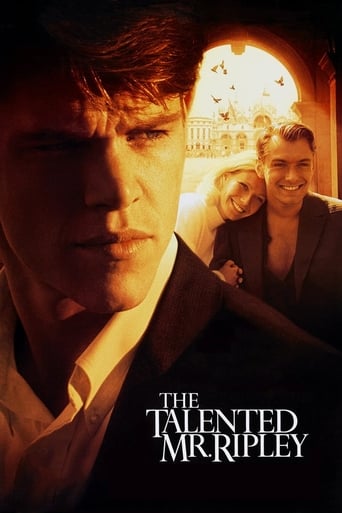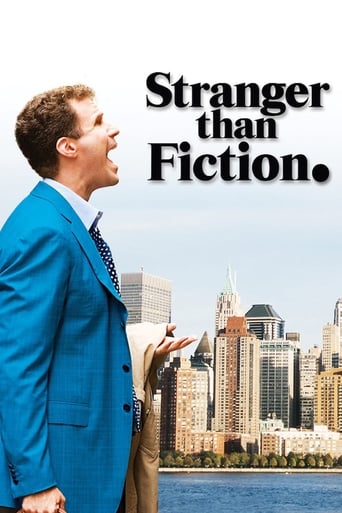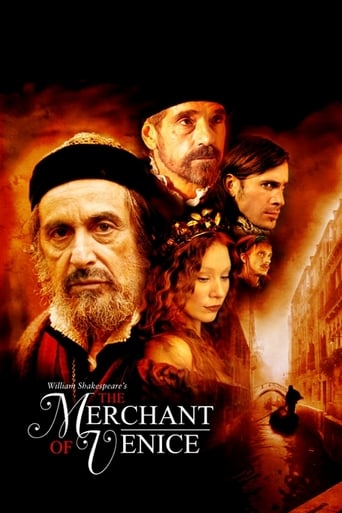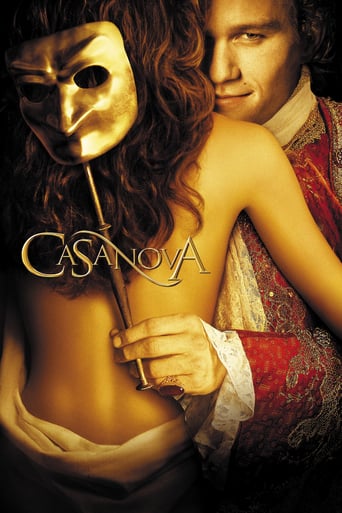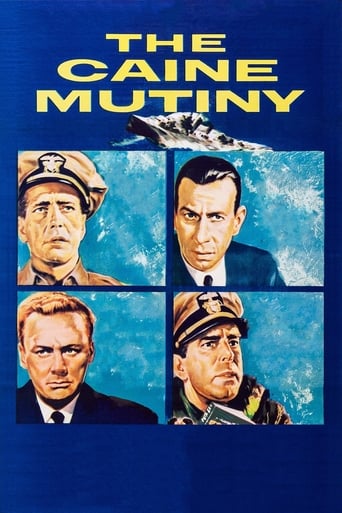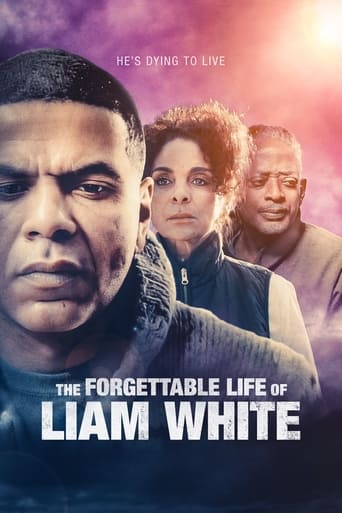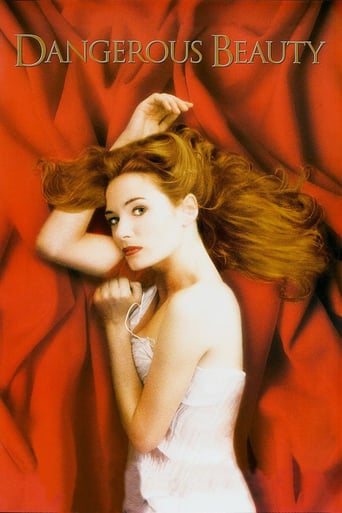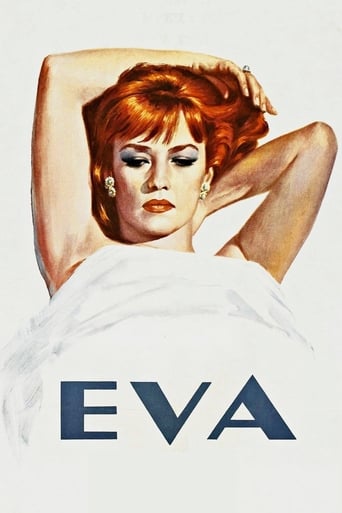
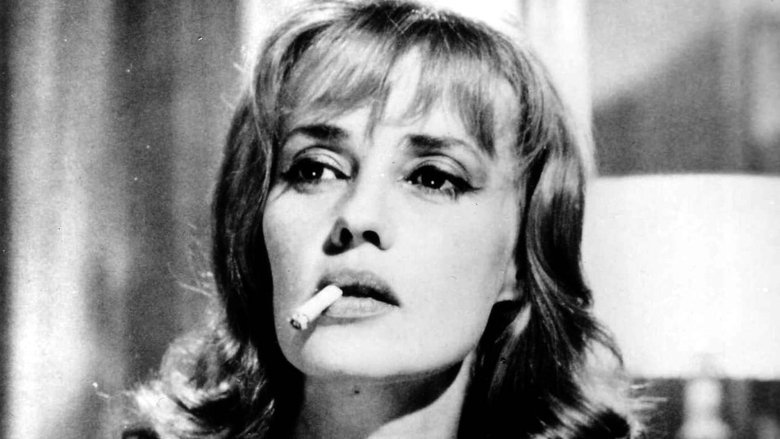
Eva (1962)
Best-selling author Tyvian Jones has a life of leisure in Venice, Italy, until he has a chance encounter with sultry Frenchwoman Eva Olivier. He falls for her instantly, despite already having wedding plans with Francesca Ferrara. Winning Eva's affection proves elusive; she's more interested in money than in love. But Tyvian remain steadfast in his obsession, going after Eva with a fervor that threatens to destroy his life.
Watch Trailer
Cast
Similar titles
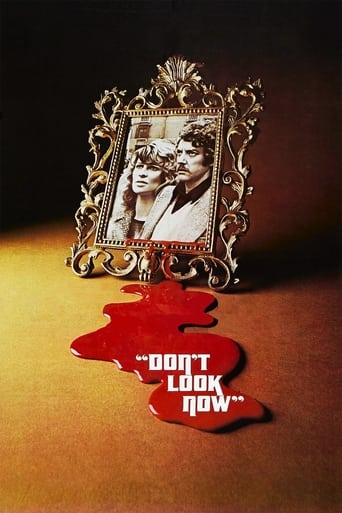
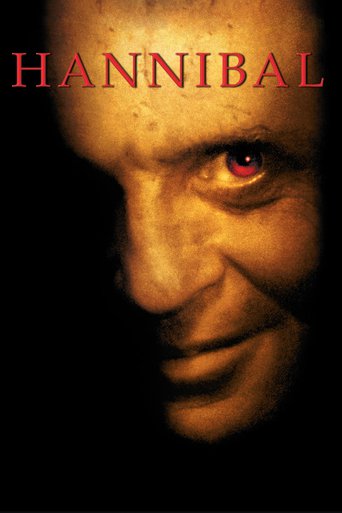
Reviews
Sorry, this movie sucks
I like movies that are aware of what they are selling... without [any] greater aspirations than to make people laugh and that's it.
A movie that not only functions as a solid scarefest but a razor-sharp satire.
Each character in this movie — down to the smallest one — is an individual rather than a type, prone to spontaneous changes of mood and sometimes amusing outbursts of pettiness or ill humor.
I had always appreciated Stanley Baker's presence in a film but having watched him in three major roles in a brief space of time - this, HELL IS A CITY (1960) and THE CRIMINAL (1960) - I realize how undervalued his talents are nowadays! This, naturally, makes me even more incensed to have missed out on the R2 SE of another notable film of his - HELL DRIVERS (1957) - which went unceremoniously out-of-print after having been available for barely a year!! Though not a great beauty, Jeanne Moreau manages to make her character's essential irresistibility to men convincing, while her relationship with Baker - turning eventually into humiliation - makes for undeniably compelling drama. Losey gave the two stars uncharacteristic freedom here to get under their respective characters' skin and explore their various idiosyncracies (apart from utilizing records of the era, Eve's obsession with jazz music is also reflected in Michel Legrand's original score) - which probably resulted in the film's overgenerous length (originally 155 minutes!) and its subsequent butchering by the producers - Robert and Raymond Hakim, who had previously worked with Jean Renoir on LA BETE HUMAINE (1938) and would go on to produce Luis Bunuel's BELLE DE JOUR (1967)! The film, however, also allows lovely Virna Lisi to shine with her sympathetic portrayal of Baker's tragic girlfriend (later wife).The film's uncompromising look at the jaded jet-set may have been inspired by Federico Fellini's LA DOLCE VITA (1960) - who, in turn, borrowed EVA's cinematographer Gianni Di Venanzo for his masterpiece 8½ (1963)! I especially enjoyed the film's Venetian backdrop (though it occasionally relocates to Rome): Baker is ostensibly a writer whose first novel has been turned into a motion picture, which is being presented at the world-renowned Film Festival - where, ironically, Losey's own film was declined and which I had the good fortune to attend myself a couple of years ago!! Besides, the funeral-on-the-water scene reminded me of Donald Sutherland's premonition of his own death in Nicolas Roeg's DON'T LOOK NOW (1973), also set in Venice. I don't know how faithful the film is to James Hadley Chase's source novel but its plot of an arrogant, selfish man brought down by an even more cold-hearted femme fatale certainly recalled two masterful screen versions of the Pierre Louys novel "La Femme Et Le Pantin" made by a couple of my favorite directors - Josef von Sternberg's THE DEVIL IS A WOMAN (1935) and Luis Bunuel's THAT OBSCURE OBJECT OF DESIRE (1977) - but, while still managing to make all their points beautifully, those films were much more fun! That said, I appreciated the film even more on a second viewing via the shorter released version (also because much of the detail had been rather obscured in the murky - and, apparently, sole-surviving - print of the longer cut, complete with forced Scandinavian subtitles): while I knew that certain scenes had been removed, I can't say that I particularly missed them; however, I was surprised to see additional footage incorporated into this version that was missing from the 119-minute cut and especially a scene (which actually constitutes one of my favorite moments in the film!) where Baker stumbles and wounds his hand which Moreau finds amusing - their relationship having soured considerably by this point - and he responds by punching her in the face!! Despite having previously made a handful of excellent films, EVA was Joseph Losey's first bona-fide attempt to break away from genre movie-making and branch out into the art-house scene: as such, the film is not only a key work in his oeuvre but also one of his most personal. It's a pity that it turned out to be such a bitter experience, with Losey subsequently disowning the 103-minute "Producers' Version" but, given that his original cut had been shorn by over 50 minutes, that's perfectly understandable. Unfortunately, that complete version seems now to be lost forever...
Truffaut muse Jeanne Moreau was one of the sexiest women in cinema. Her features were unnaturally glamorous: the dark eyes that registered anything but passivity, eyebrows always slightly furrowed, upturned mouth will full, sensuous lips. She's on fire here; thus, her Eva transcends this material. Miss Moreau fills every scene with a physicality that looks almost choreographed yet not rehearsed. She's raw carnality personified. Combining that quality with a careless self-consciousness make it easy for one to see what's missing in today's female actors. Louise Brooks had it. Jessica Lange had it in The Postman Always Rings Twice. But nobody else really. The film itself hasn't held up unless you're a film scholar or part of the intellectual art house crowd. Characters register pain by pressing a cheek against whatever wall comes their way and letting their jaw go slack. A myriad of sixties kitsch fill the screen: white masks, fur blankets, overdubbing, a jazz-scat score, and a fishtank image Mike Nichols must have borrowed for The Graduate. We even see a character face her obsession and say with fervor, "I love you! I love you! I love you!" while they have breakfast on a piazza. I've used the term 'dated' in other reviews and I'm beginning to frustrate myself. It's an easy buzzword (like co-dependent or brilliant); sometimes it has a place but mostly I find it insulting and the wrong word to use for Eva. But the film is intellectual camp.
Filmed in noir et blanc this is more noir than blanc. `Film gris' might be a better category. Venice in the winter with stormy waters, in more ways than one, provides the backdrop to this tale of two strong characters, Eve (Moreau) and Tyvian Jones (Baker). Neither character deserves, or gets, a shred of sympathy from us, she being a ruthless gold digger and the personification of evil, he a womanising writer who takes plagiarism to new heights (or depths).Despite this, the powerful interaction between them draws us in to their world as their doomed relationship develops. This development is far from straightforward, as one would expect with Losey directing a French/Italian production. Both main characters appear deaf to each other's needs or demands. The film starts more or less where it finishes but we do not get taken around a clear circle, rather we fly off at irregular tangents. Whilst not making for easy viewing it does, nevertheless, hold our attention. Moreau is central and dominates every scene in which she appears. In truth when she's not on screen the film falls rather flat. I'm not convinced that casting Baker, whose expertise lay in hard man roles either military (`Zulu') or criminal (`Robbery'), was right. He just about got away with it as a university don in Losey's later film `Accident', but as a writer moving in artistic circles this may be a stretch too far. If a freebooting Welsh Lothario (in Dylan Thomas mode) was required just think what Richard Burton might have made of it!Watch out for a brief, but wonderful performance by James Villiers as a lugubrious, plummy screenplay writer. This is not a film for recalling the `funny bits' but I defy British viewers not to enjoy Moreau's last words in the whole film - `Bloody Welshman'. Not a term unheard in English, Scottish or Irish rugby circles but coming from Jeanne Moreau? Hilarious and wonderful.The film is probably about 15 minutes too long some of the scenes between the two main characters have elements of repetition and add little to the overall development. An interesting, if flawed, movie.
I don't think "Eve" is worth the attention of anyone but cinephiles and graduate students doing work on Losey. There are interesting sequences, interesting primarily from a technical point of view, for the camera work, for the mise-en-scene, for the set decoration and so on.But the film doesn't hold up as a story. The character development and motivation are missing in the cut I saw at New York's Film Forum on 4/15/00. In "Conversations with Losey," Losey makes it clear he saw this film as a very personal document and offers full explanations of the characters and their motivations; they simply aren't there in this 125-minute version.The characters are two-dimensional, and, because of this, right away one is thrown out of the human dimension into a graduate school world where the film becomes a puzzle to be solved, a series of symbols to be interpreted, etc. James Leahy provides just such a literary-type analysis of the film on pages 116-124 of "The Cinema of Joseph Losey," exactly the sort of article that appeared in abundance about various European films in the late 50s and early 60s.In the version I saw, I couldn't care a bit about the characters or what happened to them. It was never clear what Tyvian Jones saw in Eve Olivier, especially after she knocks him out with a heavy glass ashtray on their first meeting. Is Tyvian a masochist? Jeanne Moreau, as Eve, is photographed attractively here, but she doesn't have the necessary je ne sais quoi that I expect in femmes fatales.Nor are other aspects of Tyvian's character very clear. At one point, he says that the novel he published and which earned him fame and has been turned into a successful film was, in fact, written by his brother, a Welsh coalminer now dead. What does that have to do with his fascination with Eve?Stanley Baker, who plays Tyvian, is without sex appeal here, though in other films I've seen him in, he was quite the stud of his time, exuding a raw sexuality.Eve's character is likewise blank. At one point she tells Tyvian a story about her youth, then laughs at Tyvian, saying, "You'd believe anything," implying she'd made the story up on the spot. She talks of having a husband but turns out not to have one. "At the end of the film we are not one whit nearer to understanding why Eve's life should be dedicated as it is to the dual passion for acquiring money and destroying men." (John Taylor, Sight & Sound, Autumn 1963, p. 197)The supporting characters aren't fuller developed either. I know next to nothing about Branco Malloni and could not understand why Francesca preferred Tyvian to Branco. What is the function of McCormick and Anna Maria? Perhaps they were intended as foils to Eve and Tyvian, but they are in and out of the plot sporadically.Though the film is of interest for its camera work, the film looks like many other films of the late 50s and early 60s, like films by Antonioni, by Fellini, by Resnais ("Marienbad" in particular). And why shouldn't it? Gianni Di Venanzo, who worked with Antonioni, photographed "Eve." And the film takes place in Rome and Venice. There are nightclub scenes that could have come from "La Dolce Vita"; the same with a scene at a gambling club. The film's jazz-based score by Michel Legrand makes it like many other European films of the time. And, of course, the opaque characters and the heavy use of symbolism are typical of Italian and French films of this time.In addition to all of this, the plot was a bit confusing to me. It was not until I read the plot summary of the film in "Joseph Losey: A Revenge on Life" (pages 158-162) that I understood many points of the plot. I'd suggest that anyone read a plot summary before seeing "Eve."But, then, should the average moviegoer have to do all this? No. Which comes back to my original point: the characters and their relationships, their story, are of little or no interest in themselves.Of course, if Losey's original 2 hr. 45-minute version of the film were available, I might have a very different opinion of "Eve." But that version, apparently, is lost forever.
